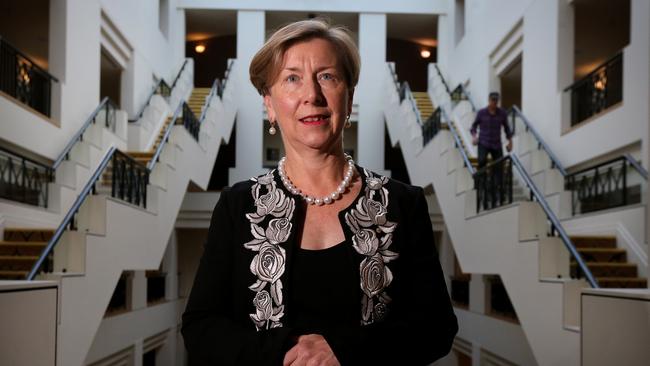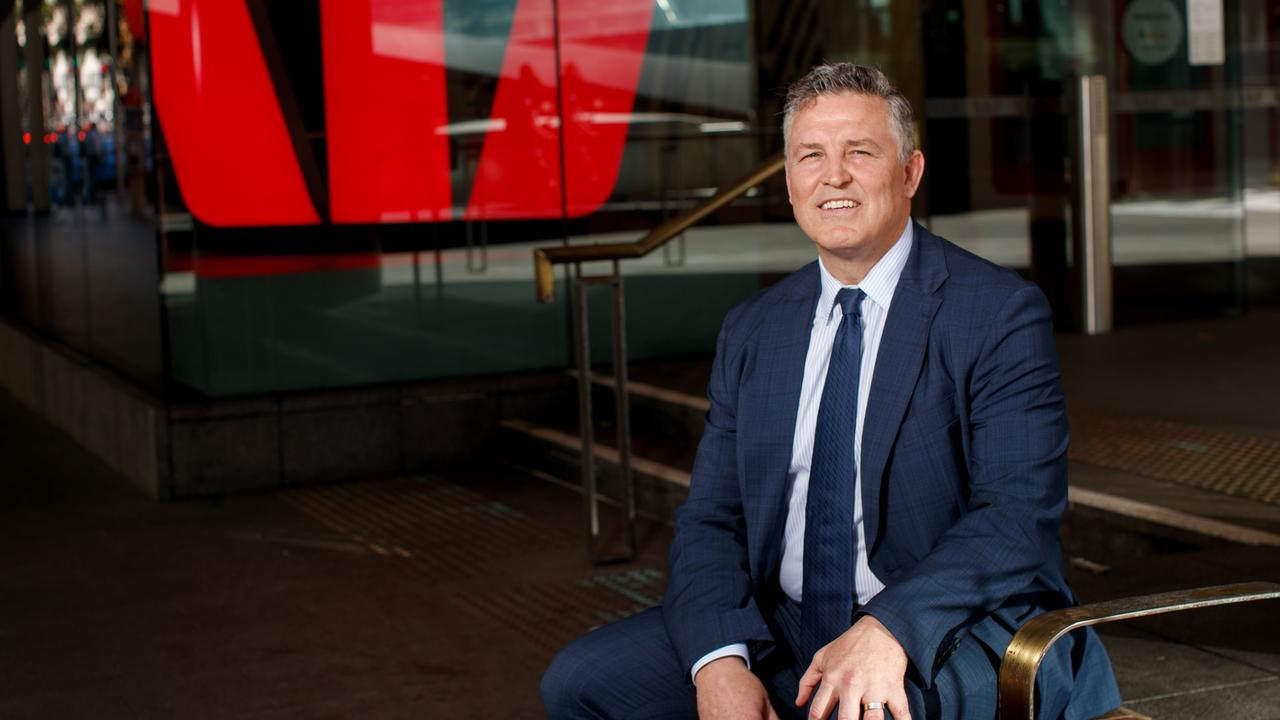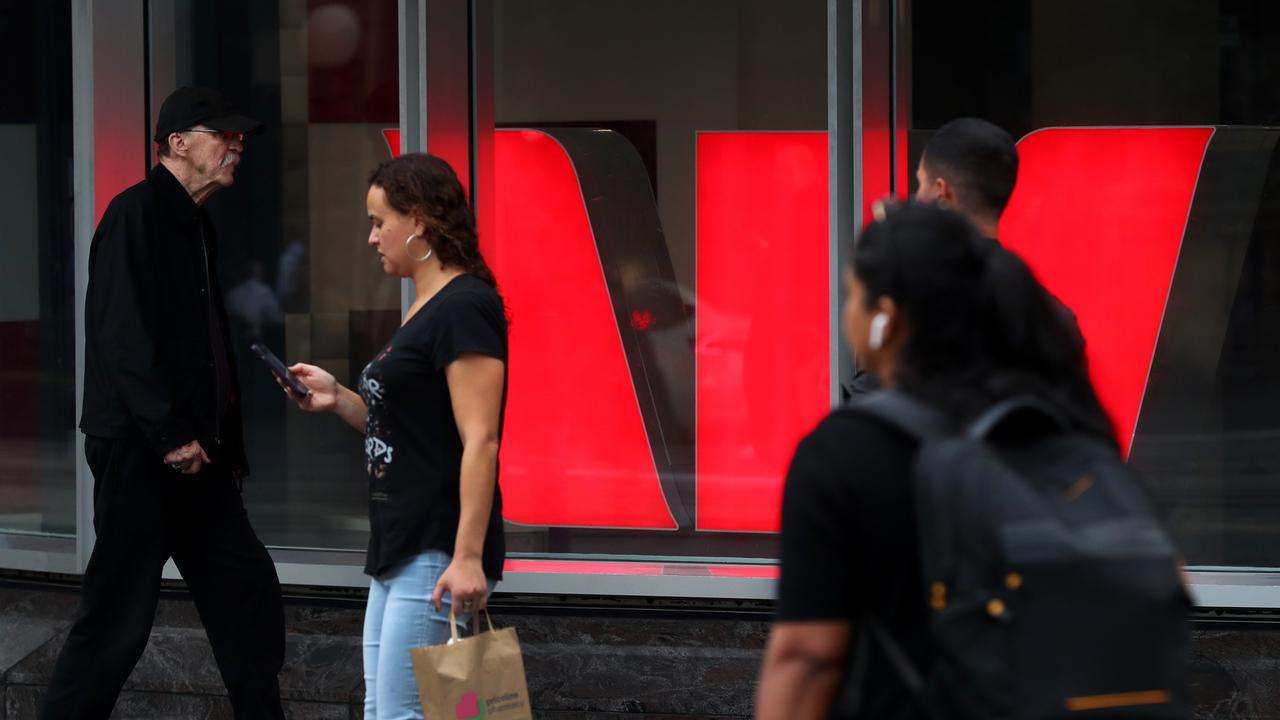Jane Halton navigates the new normal
Former health department secretary Jane Halton has a unique set of qualifications as a member of the new COVID-19 Commission.

Former federal health department secretary Jane Halton admits she has a unique set of qualifications for her current job as a member of the government’s COVID-19 Commission, headed by former Fortescue Metals chief executive Nev Power.
Halton led the health department for 12 years until June 2016 and then headed the federal finance department for two years, before opting for a career in the private sector.
Now a director of ANZ and Crown Resorts, chair of the Council on the Ageing, and the inaugural chair of the Bill Gates-backed Coalition for Epidemic Preparedness Innovations (CEPI), Halton brings a unique combination of expertise in global health, knowledge of how Canberra runs and high-level contacts in the private sector to the job of trying to help steer the Australian economy through the COVID-19 crisis.
As a member of the newly established COVID-19 Commission, Halton, who has just helped author a paper on developing COVID-19 vaccines for the prestigious New England Journal of Medicine, has responsibility for health as well as financial services and community services.
“I have this weird set of insights,” she said in an interview from her home on a farm outside of Canberra.
“I have my domestic policy hat, I’ve got my director of large publicly listed companies in Australia hat and then I have my ‘what do I do on the global stage with vaccines’ hat.”
Halton says one of her focuses at the moment is trying to help companies work through the operational aspects of the current crisis and think about how they can safely operate in a society where COVID-19 might be around for some time to come.
It’s a complicated task for each business.
“We understand we have to knuckle down and get this immediate crisis under control,” she says.
She says the commission is working with businesses across Australia to help them get through the current crisis.
But she says it is also starting to develop ideas on how businesses should operate in the future, before a vaccine is developed and widely available.
“What does the new normal look like?” she says.
“All of us will have to make decisions on how we proceed until such time as there is herd immunity or there is a vaccine or treatment.” As chair of CEPI, which is based in Norway but has most of its staff in London, Halton has an insight into progress in the development of a vaccine.
Halton says that CEPI had already selected coronaviruses for vaccine development before the outbreak began in China late last year.
“CEPI has invested money into 10 vaccine candidates,” she says. “None of them might work, but we hope at least one does.
“There are at least 10 or 15 other candidates being tested around the world. I don’t care which one works — we just want something to work.”
CEPI has invested money in work being done at the University of Queensland, which is developing a “molecular clamp”-based vaccine.
“Through that and working with the CSL and the Australian Animal Health Laboratory in Geelong, I have an insight into what is going with vaccines,” she says.
But as a member of the Power commission, Halton is helping think through ways to help the economy gradually emerge from the COVID-19 crackdown.
“We can’t have a life where people have to be cooped up all the time,” she says.
“It’s not doable. We would run the economy into the ground.”
She says there is no magic switch that will be thrown to send the economy back to the way it was before.
The future, she says, is about helping companies step up their operations in ways which take into account the dangers of the virus, providing as much protection as possible for their staff and their customers.
Halton cites the work being done by former ACTU secretary and former federal government minister Greg Combet at the ports, helping develop procedures to make them safe for operation.
Combet has brought in Professor Michael Kidd, who was recently appointed as principal medical adviser to the federal Department of Health and Professor of Primary Care Reform at the Australian National University, to help advise on best practices to allow shipping to come in and out of the country.
“We want to work out ways to help employees have the confidence that the right steps are being taken to protect their health,” she says.
“We need health authorities to do the tracing work. We are going to need businesses to help think through how to make this work.”
Halton says that it will be a gradual process of bringing the economy back on line, testing the waters with each step, with workplaces developing their own codes of operation.
“Ideally, if we are able to bring some things back online, what will they look like?”
She admits that there is no right answer at the moment but says the work being done by Combet and Professor Kidd in making the wharves safe will provide some ideas for best practice.
“We are going to be learning over time,” she says.
She cites the example of a small car-repair business in Canberra which is continuing to operate but has developed a series of practices to help make its operations safer.
These include putting cling wrap on the steering wheel of cars they are repairing, ensuring tools are not shared, having social distancing in the tea rooms, picking up cars and returning them to save customers having to come into the shop, cleaning the Eftpos machine and having a plan in case one of their workers gets sick.
Halton says the work being done by Combet and Kidd will be a “rehearsal” of what kind of safe arrangement can be developed for workplaces.
“At the moment everyone is super busy dealing with immediate calls from employers wanting advice on how to have safe workplaces,” she says.
“They are learning as they go along.”
“What we want for industries now is for them to start charting what is a safe and secure path for a sustainable operation which lets people get back to work and prevents an outbreak of the disease.”
Ms Halton said mining companies were also seeking advice on how to protect their Aboriginal workforces.
“They are very conscious that some of their Aboriginal staff come from families in remote locations where people a more vulnerable because they have comorbidities.”
Halton says she has been “heartened” by many discussions with employers who wanted advice on how to do the right thing by their staff.
But she says employers across Australia need to start thinking about a path forward.
“People should start thinking of this now,” she says.
“Until we can manage this infection with proper treatment or develop a vaccine we will have to think about how we practice in the everyday workplace — what adaptations can be made.
“We won’t have a vaccine for at least 18 months,” she says. “And even when there is one, everyone around the world will want it.
“We have to think how we can protect our vulnerable citizens and allow businesses to operate in a way that is safe for employees to survive and not have the economy in the deep freeze.”
Halton says the federal Department of Health is developing guidelines for safe working practices in the healthcare sector.
It was also working with groups such as real estate agents and people who did contract work to help them develop best operational practices.
“Our job is to get the economy up and moving as fast as we can safely,” she says.
Like many others still working, Halton is having meetings from home on Zoom, although she says there are times when more secure communications are needed, including meetings of the commission in Canberra, where Power has temporarily relocated from his home in Perth.
“In truth, we are all learning to work very differently,” she says.
“If this had happened 10 years ago, we would not have been coping as well as we are now.”
Halton says there is still a “fog of war” surrounding how businesses are operating in the current environment, with all sorts of different information coming out.
“Once it settles down, people will get a clearer picture of what is going to be up and running and what is not going to be up and running.
“Once we start coming through this and the level of infections are coming down, we will get a bit of clear area where we can start to focus on what we do next.”
Halton says the education sector has already done very well in adapting to the new normal.
But she urges companies to start thinking now about how they plan to operate in the future.
“The authorities will tell us when, where and how this can happen,” she says.
“It may well be in some places and industries first and this will be based on the best medical advice, preparedness and assessed risk.
“But when it does, we want people to be ready to move as quickly as possible in a way that gets the best outcome.
“We are not there yet, but we are getting there.”




To join the conversation, please log in. Don't have an account? Register
Join the conversation, you are commenting as Logout